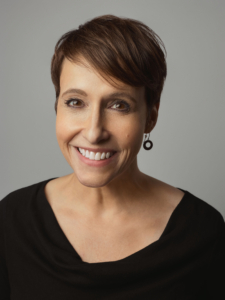Teachers: Use Your Voice To Create Positive School Cultures

Guest contributor Jennifer Abrams considers herself a “voice coach,” helping others learn how to best use their voices – be it collaborating on a team, presenting in front of an audience, coaching a colleague and supervising an employee. Jennifer holds a Master’s degree in Education from Stanford University and a Bachelor’s degree in English from Tufts University. She lives in Palo Alto, California. For more information, visit: http://jenniferabrams.com/
The use of voice in collaboration, coaching, facilitation and leadership is a piece of what each teacher does daily.
Moving from the classroom into the role of a teacher leader and a coach was a transition, to say the least. I recognized I was credentialed in teaching students English language arts, but didn’t have a credential in communicating effectively with adults. I took workshops and courses on facilitation and coaching, but the idea of being a professional in a learning community who was an effective group member as well as a leader continues to be something I am growing into everyday. As a new teacher, you too might be thinking we don’t spend enough time learning the skills, dispositions and mindsets of becoming and being a professional learner in a community.
Collective efficacy, the “collective self-perception that teachers in a given school make an educational difference to their students over and above the educational impact of their homes and communities,” (Tschannen-Moran & Barr, 2004, p. 190) presupposes that teachers collectively can make an educational difference. And collectively means together.
The bottom line: Knowing how to communicate with your colleagues is critical. How do we create a climate of trust? I like to think much of it is with our voice. Like psychologist and author of The Dance of the Connection, Harriet Lerner, I believe that how you use your voice determines the quality of our relationships, who we are in the world and what that world can be and might become. Clearly, a lot is at stake here.
So, a few ways to use your voice to create quality relationships:
- Don’t use your voice. Use your ears and listen more.
- Consider how you respond once you do share your voice. Do you go ‘autobiographical’ and talk all about you? Do you immediately ‘go to solution’ and not allow the person to find his or her own solutions? Or do you listen, paraphrase and let your colleague come to his or her own decisions?
- Watch your tone. Some mothers suggest this when communicating and they aren’t wrong. Being too cold or coming off as judgmental with tone can hurt relationships. Many relationship experts agree.
- Consider how you ask questions when you do ask one wait for the person to respond. We often are more generous with our students regarding wait time, and that is wonderful, yet our colleagues need us to hold the same container for them as they think and respond.
Becoming a learning culture in which student growth is the focus requires the adults to spend time thinking about how they are using their voices when communicating with each other. Spend time studying how to become a more effective group member. Your students will be grateful.



